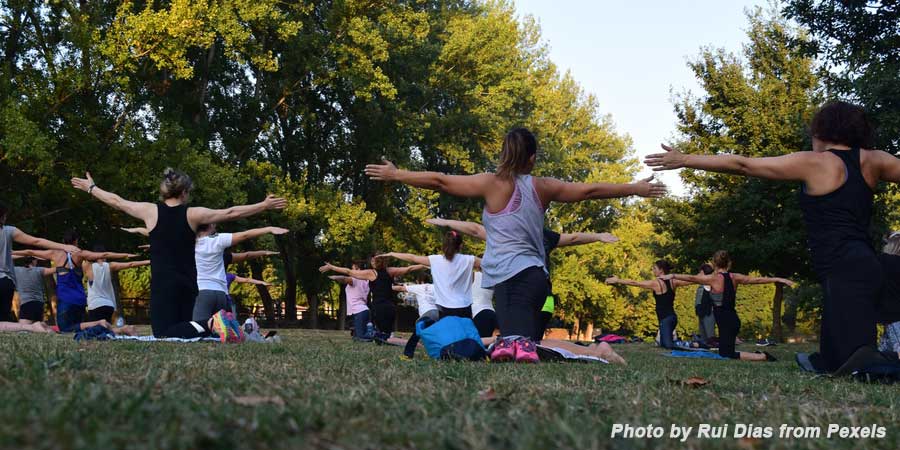“There’s no magic pill for health and immunity. There’s a lifestyle that makes your immune system – and all other systems in the body – stronger.” – Dr. Frank Lipman, MD
My latest reads on well-being came courtesy of Dr. Frank Lipman, MD in three books: The New Health Rules, How to Be Well, and The New Rules of Aging Well.
Lipman characterizes the three major goals of medicine in terms of proper organ and systems function, synergy among organs and systems, and resiliency in the face of adversity. To that end, he looks at six areas in which we can all contribute to attaining these goals.
EAT: Prior posts document what to eat to produce good health outcomes. In a nutshell: Eat lots of fresh, organic fruit and vegetables. Boost gut health with prebiotics (garlic, onions, leeks) and probiotics (fermented food). Cut out sugar and processed foods. Drink alcohol sparingly (if at all). Lipman also talks about when to eat. In particular, he advocates consuming the largest meal at mid-day, when the body’s temperature and metabolic rate are at their peak. He further advocates confining one’s daily consumption to an 8-hour period, thereby giving our bodies a full 16 hours without outside sustenance. (While the absolute minimum daily fast should be 12 hours, Lipman says we can work our way up to 16 hours per day.) This schedule boosts a cellular process referred to as autophagy, from the Greek meaning self-devouring. It’s the means by which the body recycles useful cellular material to create new, healthy cells and disposes of dysfunctional elements and toxic waste. When we boost autophagy, we optimize mitochondrial function, dampen inflammation, retard aging, and stave off disease (e.g., cancer).
SLEEP: Adult human beings need high quality sleep every night – i.e., sufficient time in the sack during which we experience the full range of sleep cycles. When we shortchange sleep, the glymphatic system has insufficient time to clear neurological byproducts that accumulate in the brain. Toxic build-up sets the stage for loss of function and, eventually, dementia. One way to promote restorative sleep calls for aligning our schedules with our natural biorhythms. In particular, we should look for exposure to bright sunlight during the day and relative darkness at night. While most of us are unlikely to opt for candle lit evenings, we can minimize our exposure to the energizing blue rays in artificial light by wearing blue blocker glasses after hours.
MOVE: Our bodies are made for movement. We need stretching to maintain good skeletal alignment and prevent injury. We need aerobic exercise to promote a healthy heart and lungs. And we need strength training to build healthy bones. High-Intensity Interval Training (HIIT) followed by a hot shower and cold rinse can be especially beneficial, invigorating, and fun! Lipman also encourages us to identify opportunities to move in the natural course of the day. For example: Alternate between sitting and standing at a desk. Walk around during phone calls. Sit on an exercise ball instead of a chair to improve fine muscle movement and balance. Take 5-10 minute workout breaks every hour. Cook. Garden. Dance!
PROTECT: Beyond following a healthy diet, we minimize inflammation and improve mitochondrial function by steering clear of toxins. Drink filtered water as the beverage of choice. Use glass (not plastic) storage containers. Avoid toxic cleaners for the home. Stay away from pesticides and herbicides for the garden. Work up a sweat to help the body get rid of its toxins.
UNWIND: Give yourself permission to be unproductive. Carve out time to clear your mind and simply rest and relax. Just say “no” to would-be intrusions on your space. Practice meditation or mindfulness. Listen to southing music. Take a walk in nature. Get a massage. Smile. Laugh. Repeat.
CONNECT: Community consistently proves healthy for body and soul. Live purposefully in service of others. Find your tribe and invest in friendship. Gathering great experiences matters far more than accumulating things! Consider forging relationship with a pet. It has been associated with elevated oxytocin (the “love” hormone), improved household feng shui (positive energy), and longer lives.
